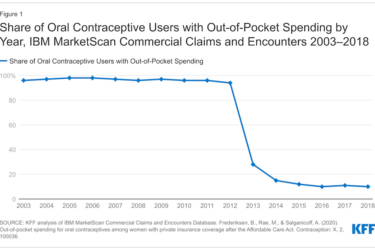Health insurers are expanding the use of bundled payment as a core part of their efforts to reform how they deliver and pay for care, according to a new report commissioned by the Health Care Incentives Improvement Institute Inc. (HCI3), a nonprofit that supports bundled payment and other payment-reform initiatives. (See below for an announcement about an HCI3 webinar on bundled payment scheduled for June 24.)
The report (PDF) by consulting firm Bailit Health Purchasing LLC showed that bundled payment has grown beyond the pilot stage among Medicare, Medicaid and commercial insurers.
“While the number of providers and payers implementing bundled payments is relatively small, we observed growth in the adoption of bundled payment initiatives,” the report said. Last year, the federal Centers for Medicare & Medicaid Services approved more than 500 organizations to participate in its Bundled Payment for Care Improvement initiative. The Medicaid program in Arkansas has a bundled payment initiative, and Ohio and Tennessee are implementing similar programs. This level of activity may mean a movement toward broader adoption of bundled payment is on the horizon, the report said.
Most insurers pay providers a fee for service. By limiting the cost of a procedure or an episode of care and holding providers accountable for the quality of care they deliver, bundled payment is fundamentally different from fee for service. Using bundled payment, an insurer sets a single price for all providers (physicians, hospital, and any post-acute providers) involved in doing a procedure or delivering an episode of care. The fee covers all treatment services and is adjusted for the severity and complexity of the patient’s condition.
Hundreds of hospitals and thousands of physicians participate in bundled payment programs, and a majority of the contracts have upside and downside risk, said Francois de Brantes, HCI3’s executive director. With upside risk, providers share in any savings, and with downside risk, providers cover any costs over budget. “We’re now in the scaling phase of this payment model and no longer in the pilot or early stage, and that’s a very important finding of this report,” de Brantes said.
Among insurers, Bailit found two trends emerging. First, public and private payers were significantly expanding the scope of their bundled payment initiatives to include more providers and more conditions in these programs. Second, insurers were investing in information systems to automate processes that previously were done manually. Also, Bailit reported, payers were simplifying their programs to make them easier to administer by contracting with few providers, for example.
The investment in information systems is significant because it shows a shift in the development of bundled payment. When payers and providers start these programs, they use spreadsheets to track costs and other data. By investing in information systems, they are demonstrating that the programs have value in terms of controlling costs and improving quality.
“Most payers are studying automation options, are in the midst of automation implementation, or are already automated,” the report said. Insurers use systems from MedAssets, Optum, and TriZetto.
The 16-page report is useful for journalists because it gives a thorough overview of how bundled payment has evolved and because it outlines the issues payers and providers face implementing these programs. Also, it lists the conditions six insurers are covering with bundled payments.
All six insurers are doing the most common bundled procedure – hip replacements – and all but one are doing knee replacement surgery. One payer has bundles for attention deficit hyperactivity disorder, coronary artery bypass graft surgery, colonoscopy, congestive heart failure, developmental disabilities, perinatal care, tonsillectomy and upper respiratory infection. Another payer is doing bariatric surgery and cataract removal. One is doing adjuvant breast cancer and pregnancy.
The insurers are Aetna, Arkansas Medicaid, Arkansas Blue Cross Blue Shield, Blue Cross Blue Shield of North Carolina, Geisinger Health Plans, HealthNow New York, and Horizon Blue Cross Blue Shield of New Jersey.
Bundled payment webinar
HCI3 and Bailit Health Purchasing will host a free webinar on June 24 at 11 a.m. ET when representatives of both organizations will explain the key operational steps payers and providers take when implementing these payment programs.









